‘My wife thinks I will come home in a box’ - PHOTO
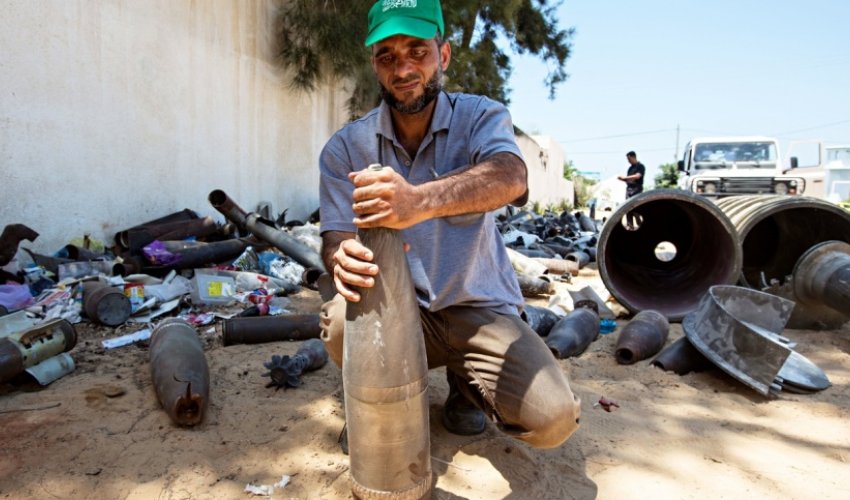
His funeral was quick, attended by a hundred or so mourners, and accompanied by a short sermon from a white-turbaned cleric, a sobbing father and some shots fired from a Kalashnikov by a skinny teenager.Two breeze blocks and a ripped piece of cardboard with his name scrawled on it now mark the grave of a personable man with an easy smile, hollow eyes and a quiet intensity that was entirely understandable given his job.The 43-year-old father of seven lies next to his brother, a Hamas fighter killed in an Israeli air strike two weeks ago. But the Hom who died on Wednesday was not a warrior. He was head of the sole bomb disposal unit of Gaza’s northern governorate and his job was to protect several hundred thousand people from the unexploded ordnance that now litters the streets, fields and rubble of many homes.Hom, who died when a 500kg bomb he was trying to defuse exploded at 10.30am on Wednesday, was an incidental casualty of a month-long war that no one seems able to stop.Three of his colleagues and two journalists were killed with him. He was well aware of the risks he was taking but believed in his work.One day last week, while the last tenuous ceasefire held in Gaza, Hom received 70 calls. In this conflict alone, he had dealt with 400 “objects”.“I try to do as much as I can,” he said at the weekend as he drove from site to site in the northern town of Beit Lahia, accompanied by the Guardian.“Every time I hear that someone has been injured by a bomb on the ground I feel very sorry. This is my responsibility. But we are very limited and don’t have proper equipment. My wife thinks I will come home one day in pieces in a box.”Hom had been defusing bombs, rockets and shells for five of his 20 years in the Gaza police. He had some training from international experts but gained most of his skills “on the job”.He had no protective clothing and used basic tools – screwdrivers, pliers and cutters – as he worked to make everything safe, be it Hamas rockets which had fallen short of their mark or bombs dropped by Israeli warplanes.Helmets, body armour and screening devices, supplied after the last conflict in 2012, had worn out or were broken.“We have been working all the time,” he said. “There is a danger to people when there is a bomb in their house. It is risky, of course, but we have to do it.“So far we have had no injuries in my team, praise be to God,” he added, though one of the team had been killed in an air strike at home a month ago.Over the weekend, before the latest ceasefire came into force, Hom dealt with a dozen or so urgent incidents. His work was slowed by frequent pauses as Israeli missiles hissed overhead, sometimes exploding only a few hundred metres away.In Beit Lahiya, he defused a 1,000kg bomb that had landed in a bike repair shop. Hossein Rabieh Salem, the 48-year-old owner, had been sleeping for several nights with his family of 18, above the storeroom and the live weapon. “Where can I go? I shut my eyes and trust in God,” Salem said.Unable to immediately render the bomb safe, Hom assured the worried mechanic he would return with a truck to pick it up and transport it to the football field opposite his police station where all the ordnance – defused or live – was dumped. There, in untidy piles, lay shells and bombs and Hamas rockets, glinting in the strong Gaza sun.Among them was a bomb lifted, still live, from the home of the Filfils in a quiet residential neighbourhood in the north of Beit Lahiya.Jazia Filfil, 60, remembered how, as the dust began to clear from her living room after the air strike last month, she saw a huge metal object half buried in the rubble where a three-piece suite had once been. She had no idea what it was.“They dropped a truck on our home,” she shouted to her husband and sons. When the family worked out that the object was no truck, they called Hom.“He is very brave but he was very slow in coming. We had the bomb in our house for weeks,” Filfil said on Sunday. Hom, listening, laughed away the complaint, joking that his “customers” were never happy.Over a lunch of beef kebabs, snatched rapidly down a Beit Lahiya side street, Hom spoke about his worried wife, his two sons and five daughters, and his wider family.His 33-year-old brother died in an air strike two weeks ago, he said. Abdel Jawad al-Hom had joined the Izz ad-Din al-Qassam brigades, the military wing of Hamas, after another brother had died following imprisonment in an Israeli jail in the early 1990s when Hamas had set out to derail the Israeli-Palestinian peace process.“He was very angry and joined as a teenager, maybe he was only 12 or 13, and rose up the ranks. He was a commander in the Beit Lahiya area. He was in a friend’s house on the frontlines when it was bombed and was martyred with two other fighters,” al-Hom said.So far the conflict has killed 1,900 people in Gaza, mostly civilians. The UN has said that around 200 fighters from Hamas and other groups have been killed. Israeli officials say the total is much higher.Sixty-four Israeli soldiers have died. Three civilians in Israel have been killed by rocket fire.On Wednesday, as Hom set out to defuse the 500kg bomb which killed him, Israeli and Palestinian negotiators were continuing indirect talks in Cairo aimed at a putting a durable ceasefire in place.The explosion was so loud it was heard five miles away, said Maher Halewi, the chief of Hom’s police station. Doctors at the al-Shifa hospital in Gaza City were working to save the lives of four men wounded in the blast who remained in a critical condition on Wednesday afternoon. The al-Shifa, like hospitals across Gaza, is chronically short of medical supplies after treating thousands of wounded during the conflict.Within two hours of his death, Hom’s remains were taken to the Beit Lahiya hospital and then to the al-Auda mosque in Jabaliya. After noon prayers and a blessing, a procession jogged through the crowded streets, past the donkey carts, the fruit stalls and the battered Mercedes taxis to the cemetery.A crackling voice from a loudspeaker a block away called people to a Hamas rally this afternoon to show support for the Palestinian delegation in Cairo.An Israeli drone buzzed overhead.Relatives shovelled sand over Hom’s remains, wetted the mound with water from a plastic jerry can and stood back, forming a line to shake hands with the mourners.The cleric called for “revenge on the Jews” and for the blessing of God on the deceased and on the community. Shots rang out as the skinny teenager raised his Kalashnikov once more. Then, within minutes, it was over and the mourners were gone.(theguardian.com)Bakudaily.Az
























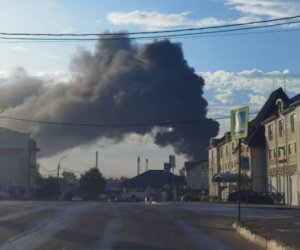
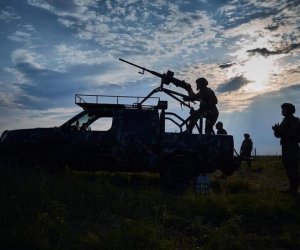

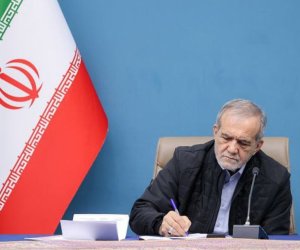



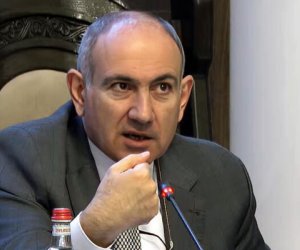
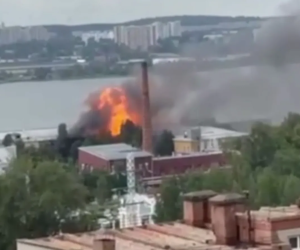



 Photo
Photo 



 Video
Video 

